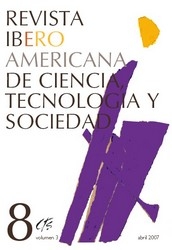Philosophy of Science Policy
Presentation
Abstract
CTS has organized this dossier on the philosophy of science policy as a dual tribute to Emilio Muñoz—friend, colleague, and in some cases, mentor to those of us who edit this journal. The almost purely bureaucratic fact of Emilio's retirement will certainly not mark the end of his contributions in this field, but it does open the door to well-deserved recognition. CTS pays tribute, on the one hand, to the researcher and practitioner of science policy during crucial times for the scientific and technological development of modern Spain. It also honors someone who, in the final years of his career, felt the need to engage in deep reflection on his own experience, promoting the “Philosophy of Science Policy” program within the CSIC. The best tribute is having brought together a group of authors—many of them prominent professionals and personally close to Emilio—who represent the leading edge of this field: the philosophy of science policy, understood as a multidisciplinary space for reflecting on the social, political, and ethical challenges posed by the promotion and governance of science in today’s world. This dossier on the philosophy of science policy is, in turn, inspired by the one published by Philosophy Today, “Toward a Philosophy of Science Policy: Approaches and Issues” (2004). Carl Mitcham and Robert Frodeman, coordinators of that issue, also contribute with reflections in this volume.
Downloads
Downloads
Published
How to Cite
Issue
Section
License
Copyright (c) 2025 CC Attribution 4.0

This work is licensed under a Creative Commons Attribution 4.0 International License.
All CTS's issues and academic articles are under a CC-BY license.
Since 2007, CTS has provided open and free access to all its contents, including the complete archive of its quarterly edition and the different products presented in its electronic platform. This decision is based on the belief that offering free access to published materials helps to build a greater and better exchange of knowledge.
In turn, for the quarterly edition, CTS allows institutional and thematic repositories, as well as personal web pages, to self-archive articles in their post-print or editorial version, immediately after the publication of the final version of each issue and under the condition that a link to the original source will be incorporated into the self-archive.











